
Who cares for the feet of famous footballers in Slovenia
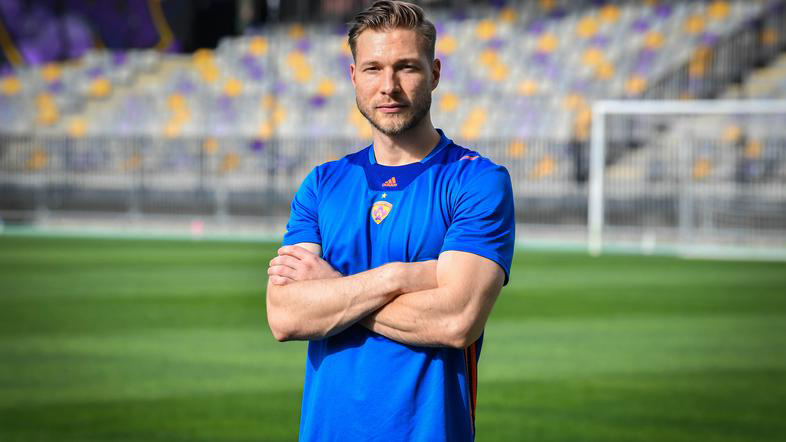
Almedin Muharemović completed his studies of physiotherapy at Alma Mater barely a year ago and is now already a well-respected physiotherapist at the Maribor Football Club, while also working at the Aleksander Hotel in Rogaška Slatina.
We were curious as to what contributed to his rapid success, while he still remained very modest. He said he was only at the beginning of his career, "so it makes no sense to talk about success."
I realize that there is still a lot of learning and work to be done before I can say that I am successful. I am also aware of the responsibility of my work. That is why I have been fully involved in the process since the beginning of my studies.
Almedin Muharemović
The easiest way to explain my work is by comparing players to race cars. After each "run" or in our case after training, a mini-service is required, and after the "race" or after a game, the service needs to be a little more thorough.
In his first year of studies, he started working at the Rudar Velenje Football Club, where he had previously played football. While attending college, he also attended various congresses and courses, and worked with senior physical therapists to help him with his experience.
He says he devotes himself to every patient, tries to explain to him understandably what is going on and how they will resolve the matter: "I choose positive words because I want to present the body as a powerful organism that can heal. I use different methods and techniques that I've learned so far, and I'm always looking for the source of the problems. To all that, I add a little humour and I get a positive result."
What does your normal working day look like?
I usually spend an hour and a half, sometimes two hours before training at the stadium, where I get the equipment, change clothes and prepare the necessary tools and all the other equipment needed for work with my three colleagues. Our work includes taking care of players' hydration, which is why one of us prepares isotonic and individually tailored drinks, water; and protein drinks after training. About an hour before the training, the players arrive and that's when our work begins.
The easiest way to explain my work is by comparing players to race cars. After each "run" or in our case after training, a mini-service is required, and after the "race" or after a game, the service needs to be a little more thorough.
From training to training, players are subjected to very high forces on the body, which can result in micro-injuries. My job is to help with body regeneration, as we aim for a positive body adaptation as quickly as possible, thereby improving physical performance. I can divide my work into preparing players for training, first aid readiness in the event of injury or accident during training, regeneration and rehabilitation of injuries after training, and prevention of injuries.
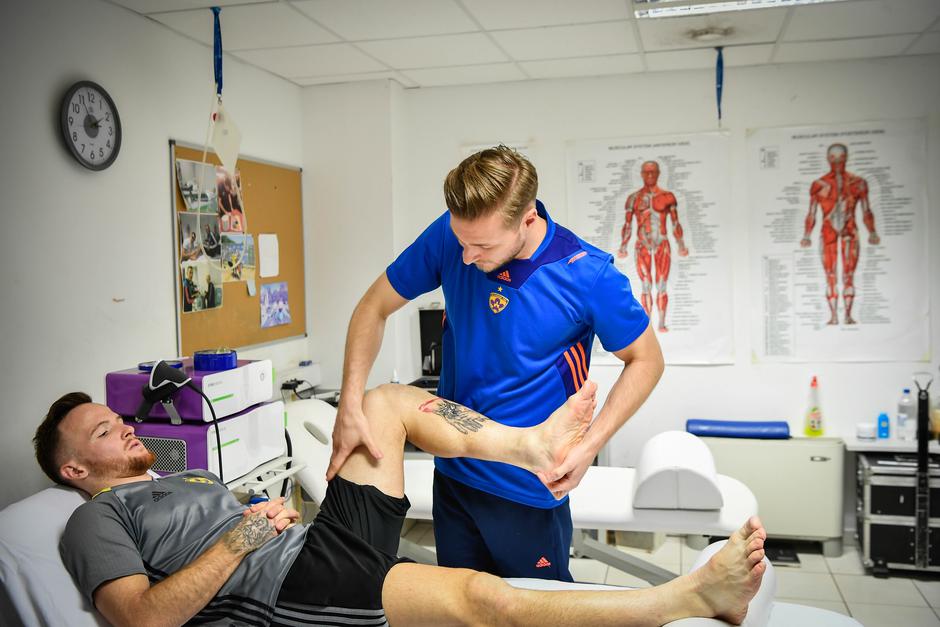
Preparation for training involves taking care of minor problems such as calluses, scabs, less stable joints, especially ankles, which require preventative bandages, joint mobilization and heating of muscles with heating creams. Within regeneration, we carry out pressotherapy, massages, and stretching. In case of kicks and punches we use a variety of creams, bandages, Kinesio tapes and appliances.
Most of the time I experience overload injuries in the area of the muscles or their growths, pain in the knee and spine. Rehabilitation is individually tailored, as players differ from one another. Overloading occurs because the body is unable to compensate for all forces and then decompensation occurs. My job is to find the problem and balance it, or to help the body to regain its balance.
As part of prevention, we work with a fitness trainer to focus on proprioceptive exercises and individually tailored workouts. Our goal is to increase mobility, control or awareness of movement and to find muscle balance.
What about before a match?
My pre-match work is not much different compared to training. The main difference is quarantine on the match day or one day before. In quarantine, my job is to take care of the overall health of the players and the professional staff, complete the necessary therapies and prepare the players for the match.
What does your work in the hotel look like?
At the hotel, the work process is the same as at the club. The only difference is that I tailor therapy to the general population. I think they appreciate me precisely because of the factors that I have already listed. The main indicator is patient satisfaction.
We have heard that your workload at the hotel is very appreciated and the price is high ...
Guests of the hotel are businessmen from Russia and neighbouring countries. I wouldn't talk about the cost of therapy and my earnings. However, it is a higher price range. The whole process at the hotel is based on the anonymity of the guests.
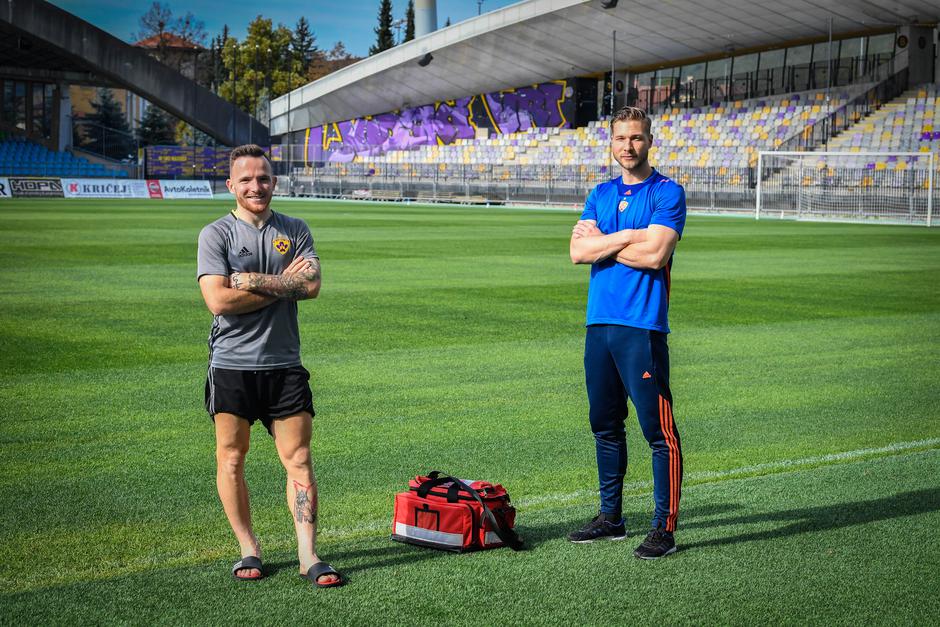
Why did you decide to study physiotherapy?
Ever since I was a child, my goal was to become a footballer. At the age of seven I started training at NK Rudar Velenje. After graduating from Sports High School, I enrolled into the study programme Geotechnology and Mining in Velenje as I wanted to get a profession. I passed all exams except practical training, because I was playing football professionally. During my career I had problems with my knee which caused me to finish active career at the age of 22.
Then I decided to finish my studies, which meant that before graduation I had to do practical training at the Velenje Coal Mine. This took five months and during that time I realized how difficult this job was. Hats off to all the comrades!
I also figured out that I was not happy with this work. I wanted to stay in touch with sports since I had been in this environment all my life. During rehabilitation after knee surgery, I gained additional knowledge about body functions and anatomy. After putting it all together, I thought that studying physiotherapy was right for me.
Did you have any additional training besides your studies?
Already during my studies I obtained additional knowledge at congresses and in different courses. What also made a huge difference to me was that after finishing my first year I was able to start working at NK Rudar Velenje, where I had already gained experience as a footballer. I also obtained advice from older and more experienced physical therapists whom I had already met as a footballer.
During my third year, I gained additional knowledge as part of a one-year mentorship by a physiotherapist from the English rugby team, who also allowed me to visit and do some practical training in his private practice.
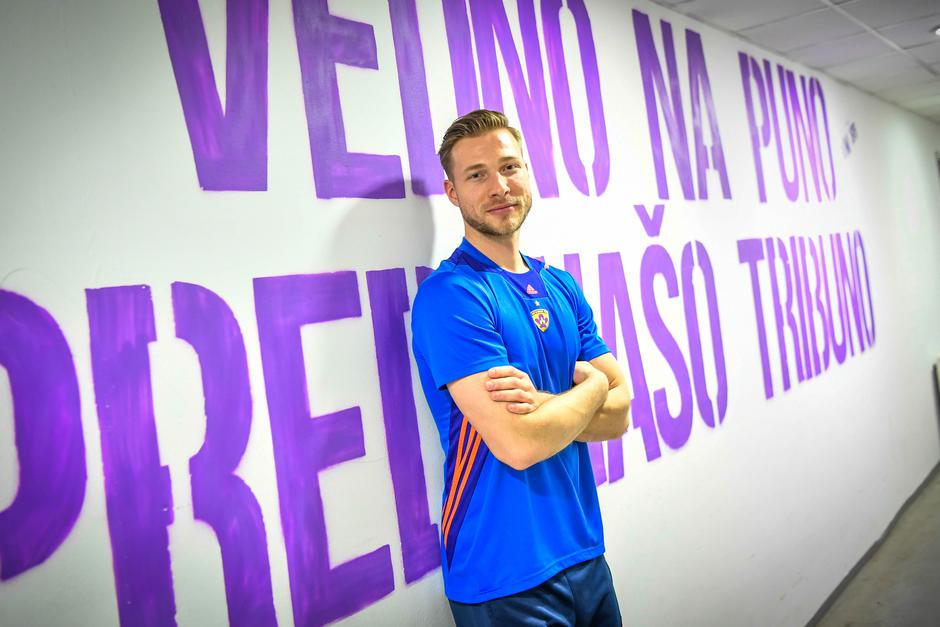
After graduating from Alma Mater, I felt that I needed to continue my studies. Physiotherapy is a science that requires lifelong education. During work, I notice that I still had a lot of room to learn. So far, I have only gained knowledge of musculoskeletal problems, and I am aware that the body functions as one and that the problem on one body system reflects on another.
So I came up with the idea of studying osteopathy. This study does not exist in Slovenia yet, so I enrolled in a master's program in Copenhagen. Because of my job responsibilities, I studied part-time, so for the next four years, as long as I study, there will be many regular monthly visits to Denmark. The first impression is more than positive as I am acquiring the knowledge I was looking for.
Did you encounter any problems during your studies?
Have you ever though you made a mistake? Before I enrolled, I took the time to think about what I wanted to do in life. After six months of thinking and exploring, I decided on a longer and more difficult path. I knew what I wanted to become and what my goal was. That's why I didn't have any problems during my studies. It was the opposite. From month to month, my desire for knowledge grew. I passed all the exams in the first term and with good grades.
As a former footballer, a positive thing about me is that I work in sports and I am still part of a football team, only in a different role. In addition to this trait, it is a nice feeling to help someone who is in trouble. We all know how we feel when something hurts us.
You were active throughout your college years. What did you do?
My extracurricular activities began in my first year at Alma Mater when I applied to lead the project "Rehabilitation of Young Athletes". We, together with our colleagues, successfully implemented this project during our studies, and we presented our work at one of the student conferences.
In my second year, I joined the tutors, where I was given the role of chairman of the tutoring system until my graduation. I also worked with the Student Council and on the project of comprehensive treatment of the elderly after discharge from the clinical environment. I also played a student league semi-final for Team Alma Mater, which we won, but I couldn't participate in the finals, again because of my knee. My team-mates won the match, and herewith the College Football League.
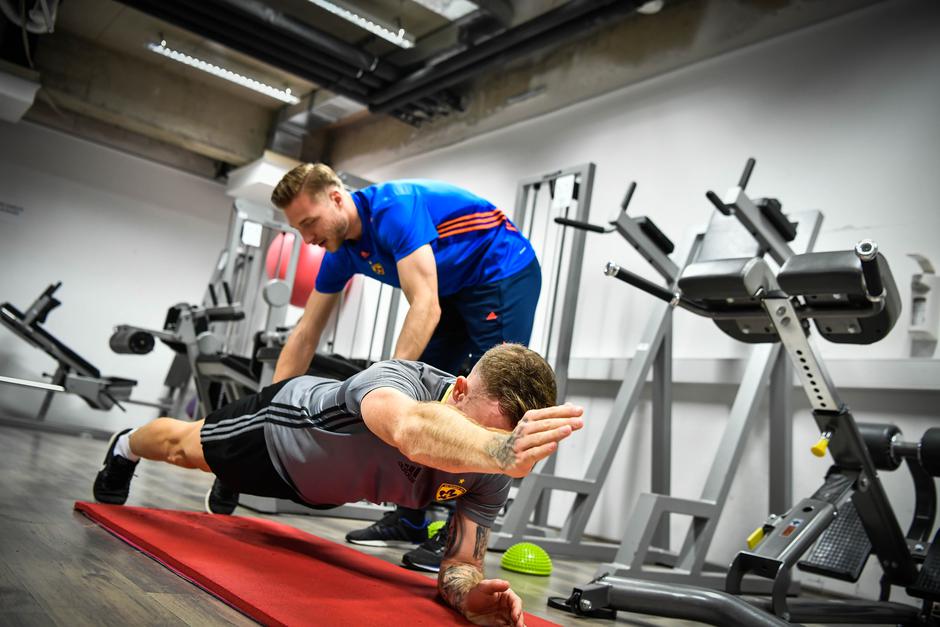
Where do you see yourself in 10 years time?
Whatever I do, I want to be happy and smiling. What advice do you have for anyone who has also decided to study physiotherapy at Alma Mater? It takes a lot of effort to succeed in every profession. This is also the case with physiotherapy. We must acquire a great deal of knowledge and bear responsibility first to ourselves, then to the patient, society and the profession.
I suggest the students to start learning immediately, as this way they will take away the most knowledge and gain on time. Engaging in extracurricular activities will allow them to gain additional knowledge and to get to know colleagues with whom they can also make friends. Studying comes first, but with proper time allocation, you don't have to give up on student fun and hobbies. Finally, I suggest that they do not fear high goals.
Source: zurnal24.si